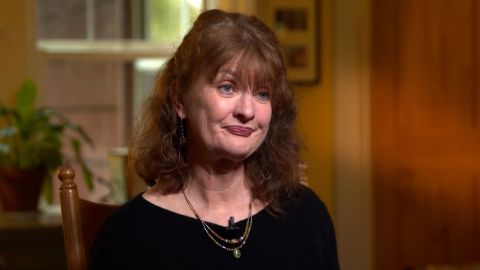CNN
—
Author Melissa Hart refuses to give in to other parents challenging the content of books aimed at children and young adults.
While parents, lawmakers and others speculate about the intent of authors and educators, the mother of a nonbinary teen is determined to promote inclusive content because “representation is critical,” she told CNN. “I grew up not even aware that anybody besides me had two moms because it wasn’t in literature. It wasn’t talked about,” Hart said.
As more books are being challenged, and states are passing laws to make the challenging of books easier, a growing group of educators, parents and students is fighting back.
In states including Texas and Washington, young people are forming banned book clubs. Teens and young adults have also protested and called out the generational gap when it comes to talking about gender identity and the restrictive policies that ban books they say are important. Retired school librarians are also organizing – and authors such as Hart are determined to keep writing the stories that they say simply didn’t exist when they were young.
In her latest book, “Daisy Woodworm Changes the World,” one of the main characters has two moms.
“I know it’s going to get banned,” Hart says.
Hart’s life is filled with young adult fiction. She writes her books from a small studio behind her house near Portland, Oregon, and teaches other people to write young adult books. She even dresses up in a T. rex costume and gives books away.


“I refuse to give in, I refuse to surrender. I will fight the good fight, I will put on my inflatable T. rex costume and fill the little free libraries in my community with diverse books until the cows come home,” she said.
As some parents use school board meetings as places to spar over what’s appropriate to expose children to, Hart says she sees people who are not looking at their kids’ social media feeds.
“Books are not teaching kids to be a certain way. Books for kids are providing safe spaces for kids to explore their identity and providing them with a language to talk about that identity, and not just their identities.”
In 2019, Hart wrote a book for adults, a guide to finding inclusive books for kids. The idea came from the missing stories in her own life.
Research also supports Hart’s logic.
In a recent study, researchers in Minnesota analyzed data from students across the state in grades eight, nine and 11, finding that a significant portion of the youth population identified with terms including lesbian, gay, bisexual, queer, pansexual, transgender, genderqueer, genderfluid or nonbinary.
Many of the identities the students in the study use are often absent from forms and surveys given to them, which is especially concerning given the high rates of depression and bias-based bullying experienced by many students, particularly those who identified as pansexual, nonbinary or transmasculine.
A step as simple as expanding identity options could help, according to the study, published in the American Academy of Pediatrics.
And that’s what Hart continues to do as an author and parent.
Hart and her husband, Jonathan, live with a lot of books, animals and their teenage daughter, Maia, who identifies as nonbinary.
Like most teenagers, Maia is plugged into the social media debate, where adults are increasingly warning that teenage lives are becoming dangerously confused about identity.
And she says those adults grew up in a different world from her and her peers.
“I identify as nonbinary, but I love all genders,” Maia told CNN. “I think they don’t have the capacity to understand us. Like, because they didn’t grow up in our time. They don’t know exactly what we’re going through. So they can’t put their brains into our brains.”
Maia says that when she hears adults attack books, she hears attacks on teens who identify as nonbinary.
“What else are they (kids) supposed to read? … they should read about themselves. They should see themselves in the books they read. And not just White people and straight people or cisgendered people.”
This seems like an easy concept for teens such as Maia to accept but when asked why it’s so hard now, her response was simple.
“Adults throwing tantrums, obviously, like always.”














